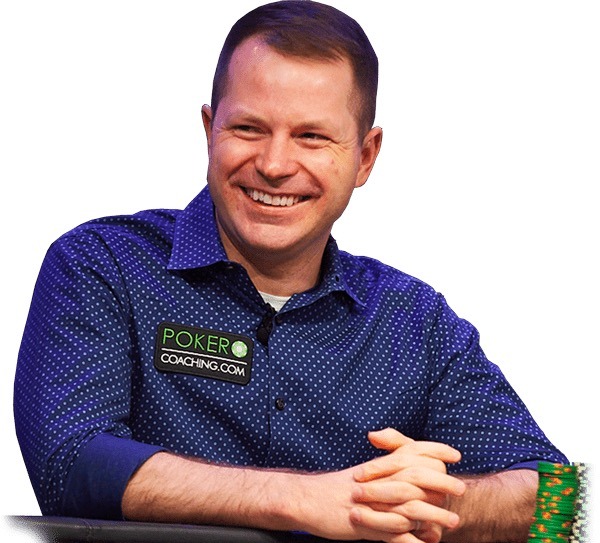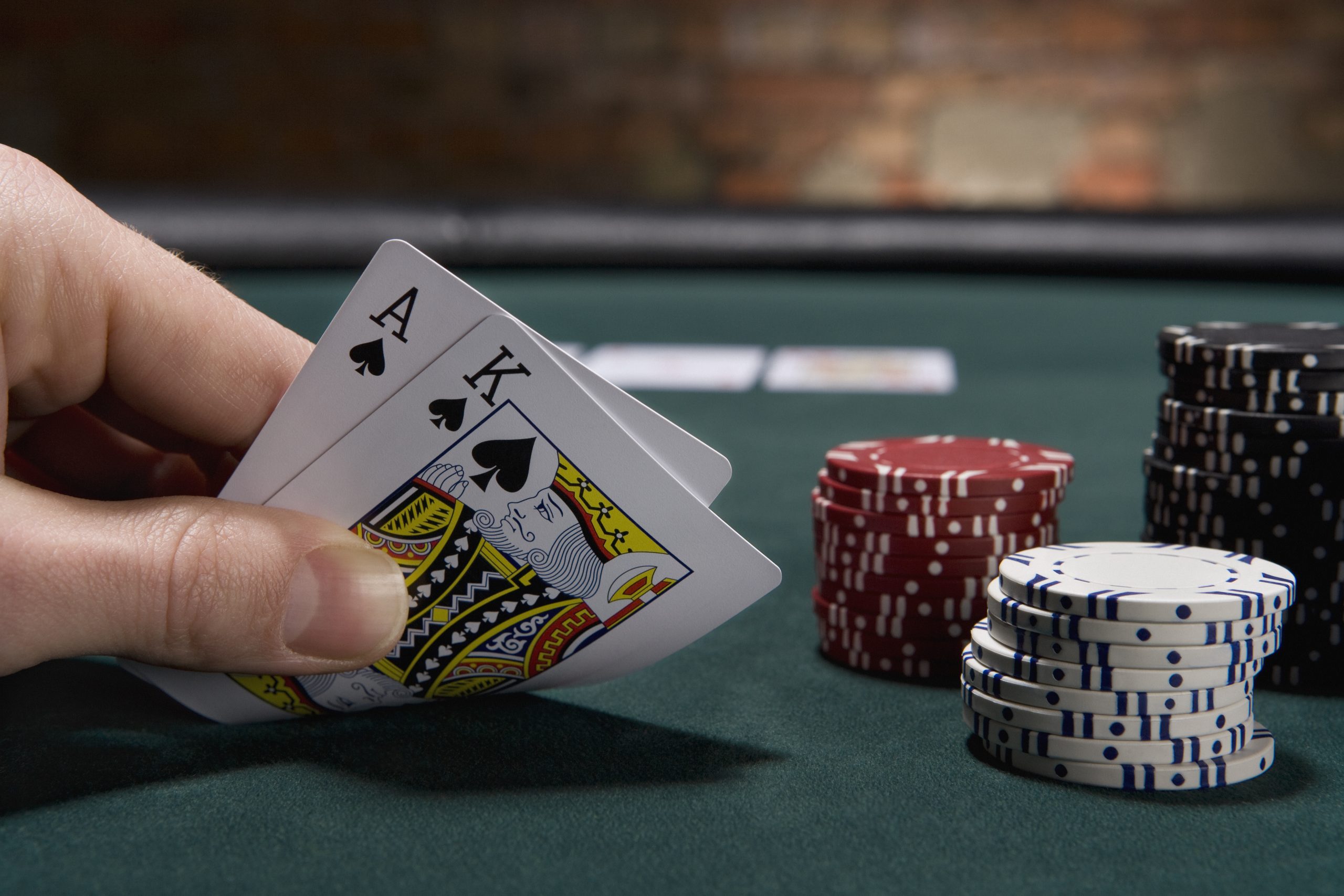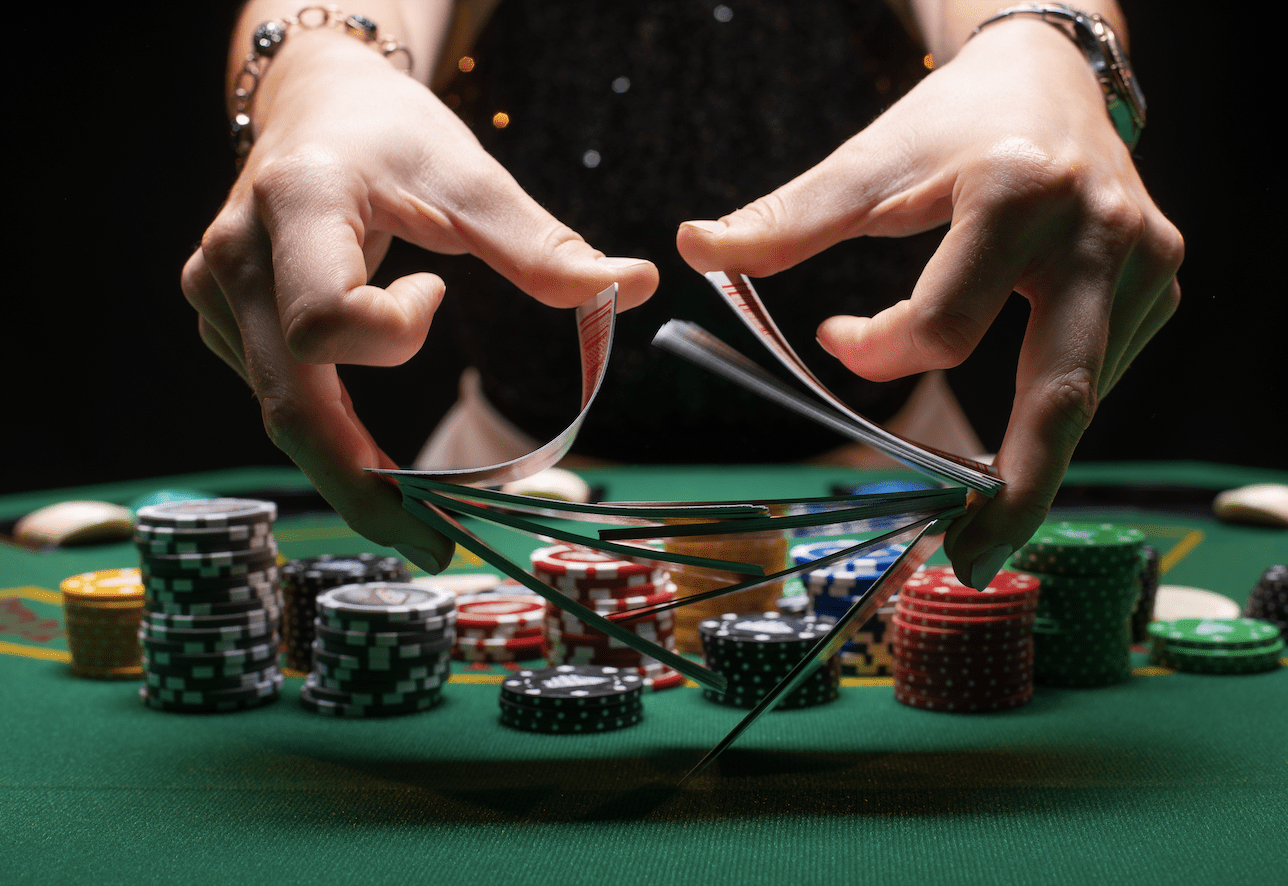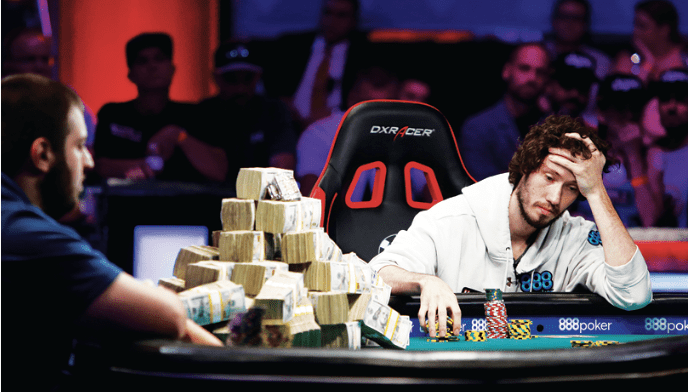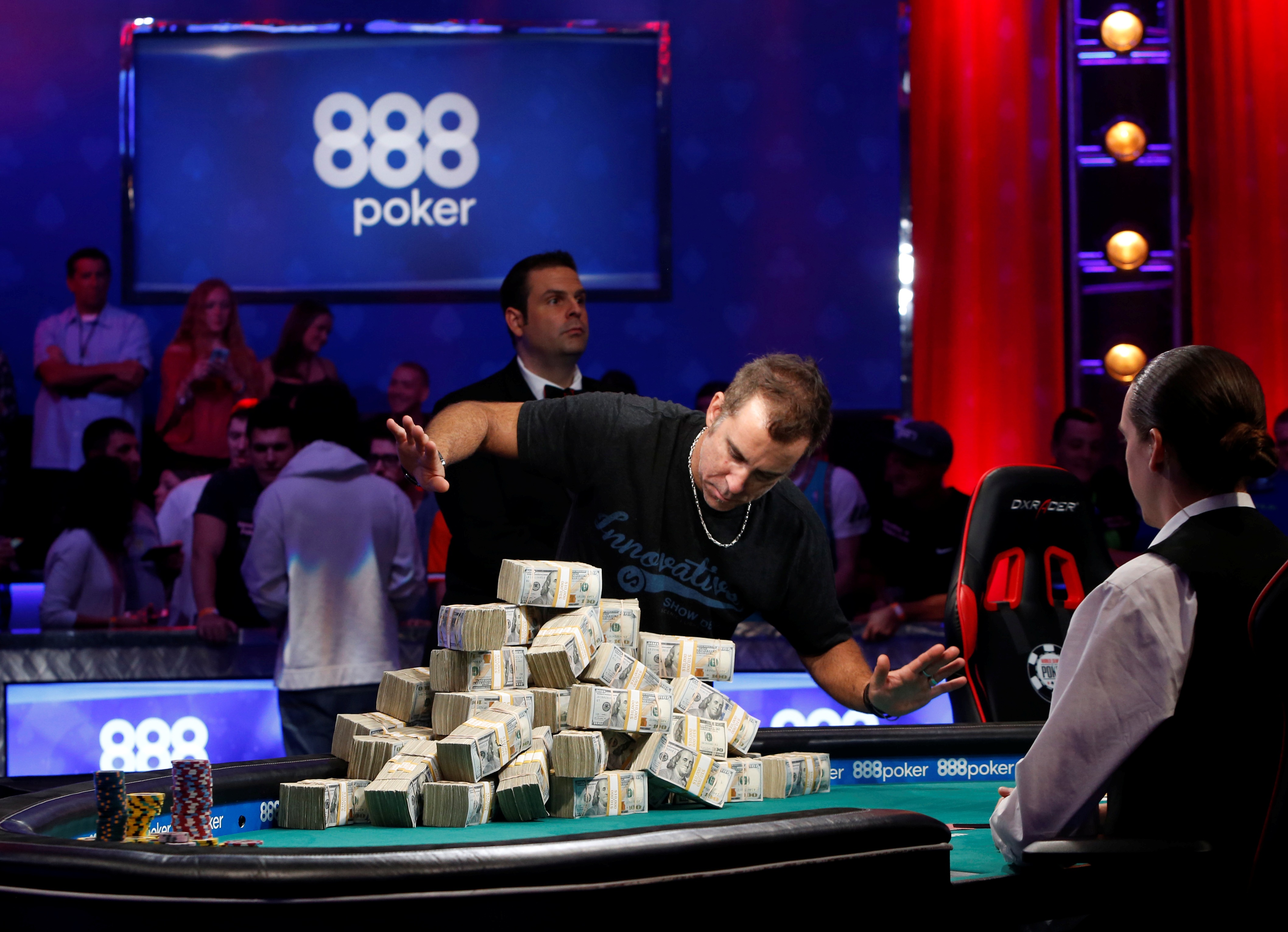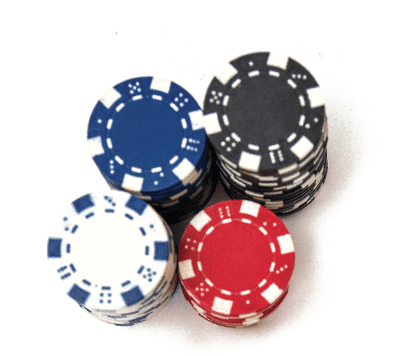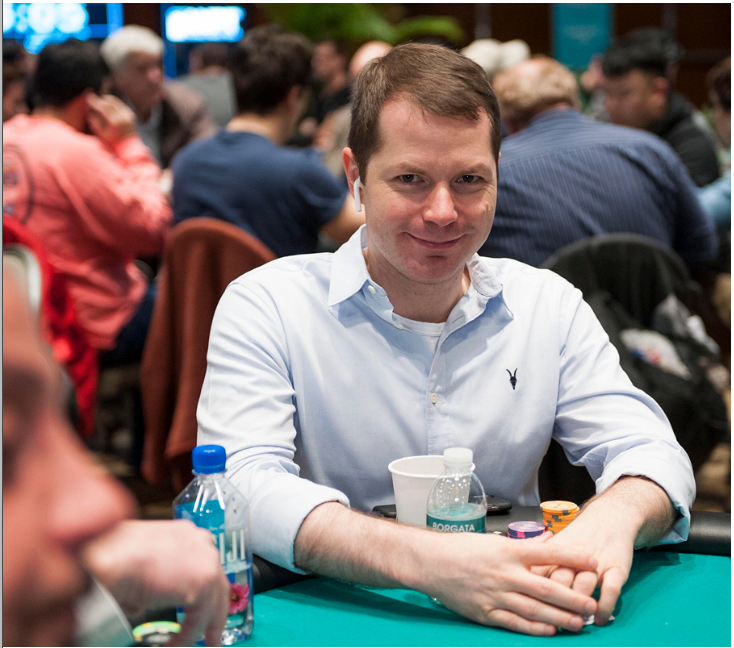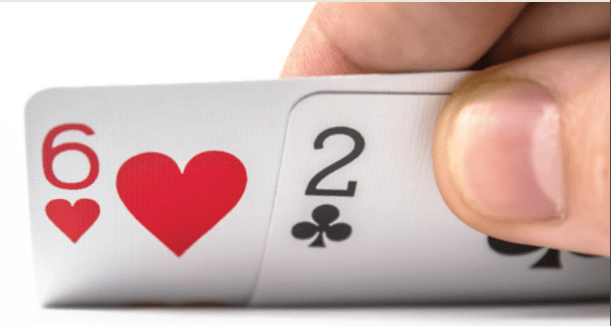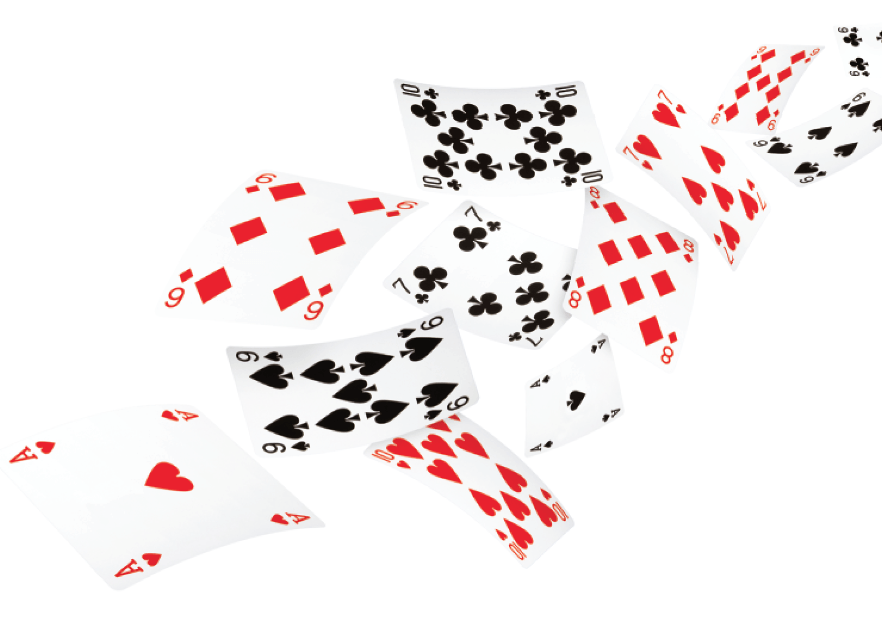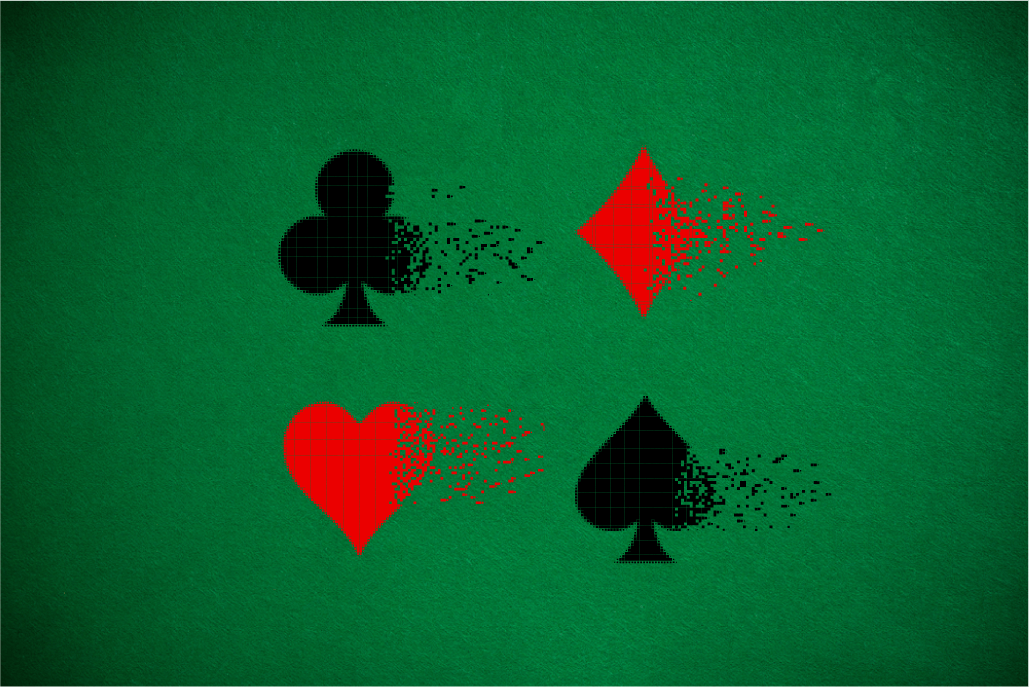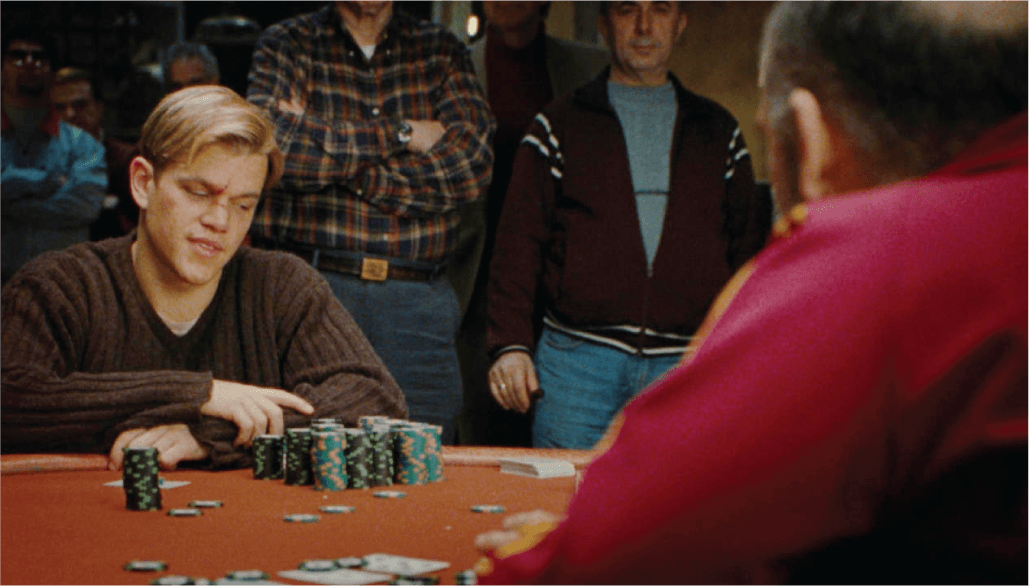Bet Sizing & Implied Odds
The proper size of a bet is often determined by the potential payout
When playing a hand of poker, consider the immediate risk, future potential risk and potential profit. Realize that some hands play better under certain situations. Sometimes it’s good to play speculative hands and other times it’s better to fold them.
Consider this example: Someone raises to two big blinds (bbs) before you, and you have a solid speculative hand like 8♠-6♠ on the button, which is the worst hand at the moment but has the potential to improve to a premium hand like a flush or a straight.
The amount you can potentially win from your opponent should be one of your main concerns. If you can only win a little bit from your opponent because he has a short stack of perhaps 25bbs or fewer, you should usually fold your speculative hand because the potential reward (25bbs) is not worth the risk (2bbs).
That’s expressed as 12.5:1 implied odds. You have to invest one unit to win 12.5. But if you are both deep stacked with 100bbs, you should usually play your hand because you will then be getting 50:1 implied odds.
As a broad generalization, to play a suited connected hand like 8♠-6♠ or a marginal suited ace like A♠-6♠ profitably, you ideally want to be getting 20:1 implied odds or more, assuming you do not expect to be able to win the pot by bluffing too often. That will often be the case in small-stakes games in multi-way pots.
With small pairs, you usually need about 10:1 implied odds. If you are not getting the correct implied odds—either because the stacks are shallow or the initial raise was large—you either have to fold or potentially use your hand as a re-raise bluff.
While small pairs, suited aces and suited connectors have implied odds, some hands have reverse implied odds, meaning you will usually either win a small pot or lose a large pot.
The hands that have the worst reverse implied odds are a big card with a small card that are not suited, such as K♠-5↔ or Q♥-7♦. Imagine you see the flop and make top pair, which is normally a strong hand.
If you bet and all your opponents fold, you can be confident you had the best hand, but you are rewarded with only a small pot. If instead you bet and someone calls or raises, they could have a better top pair than yours, or a worse hand, but you have no way of knowing which.
If you bet the flop and they call, if you continue betting on the turn and river, you will find that when you get called, it will usually be by a better hand, and you lose a large pot.
Because of that, hands with large reverse implied odds, like K↔-8♦ and Q↔-9↔, should not be played in most situations, especially in multi-way pots or when the stacks are deep.
When you are likely to be against only one opponent, like when everyone folds to you before the flop on the button, or when you are shallow stacked—such that you can be happy enough playing for your entire stack with a marginal top pair—these hands potentially become playable.
Takeaways
As the stacks are deeper and the pots are played multi-way, you are incentivized to speculate with hands that are likely to lose a little or win a lot—primarily the small pairs, suited aces and suited connectors.
Folding the non-premium off-suit hands will keep you out of trouble and save you a lot of money.
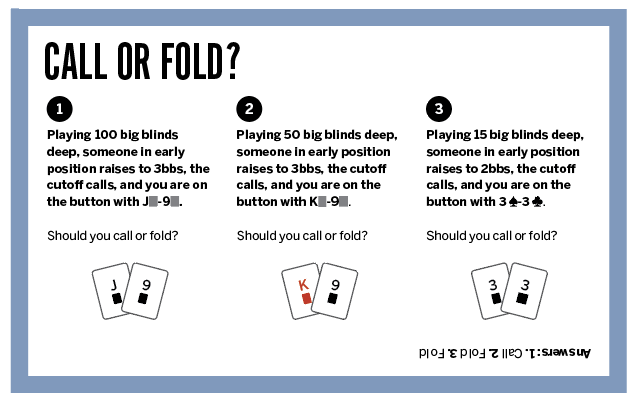
Jonathan Little, a professional poker player and WPT Player of the Year, has amassed more than $7 million in live tournament winnings, written 14 best-selling books and teaches at pokercoaching.com. @jonathanlittle


